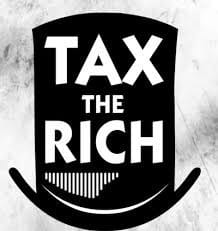Addressing Tax Fairness in California Amidst Budget Deficit
In a recent State of the Union address, President Biden highlighted the need for tax fairness, targeting tax cuts for the wealthiest and proposing increased taxes for corporations and billionaires. While these changes hinge on federal election outcomes, California has its own fiscal challenges and opportunities to address inequity.
The Golden State is currently grappling with a projected $73 billion budget shortfall, according to the California Legislative Analyst’s Office. This deficit threatens funding for critical areas such as education, housing, and climate initiatives. The California Budget and Policy Project (CBPP) underscores the urgency, pointing to the stark income inequality reminiscent of the Great Depression era.
With over one-third of Californian households struggling as working poor, the CBPP calls for a reevaluation of the state’s tax system. Despite a progressive personal income tax, the overall tax burden is regressive, disproportionately affecting those with lower incomes.
To tackle these issues, several measures are on the table. Ending certain tax breaks could reclaim an estimated $70 billion annually. State Senator Nancy Skinner has proposed a corporate tax rate increase for the largest companies, which could generate $6 billion for public services. Additionally, there’s momentum to tax excessive CEO pay, with previous legislative efforts and local jurisdictions like San Francisco taking action through surtaxes.
Moreover, wealth tax legislation is being considered in California, aiming to levy a 1 percent tax on households with net worths exceeding $50 million. This could bring in an estimated $22 billion, with significant contributions from the state’s billionaires.
While Governor Newsom has expressed opposition to a wealth tax, public sentiment appears to favor such measures. Polls by David Binder and Associates and Target Smart reveal strong voter support for taxing the ultra-wealthy.
As California faces fiscal challenges, the push for tax fairness remains a contentious yet critical issue. With public services at risk and inequality widening, state legislators are under pressure to find solutions that ensure the wealthiest contribute their fair share.






